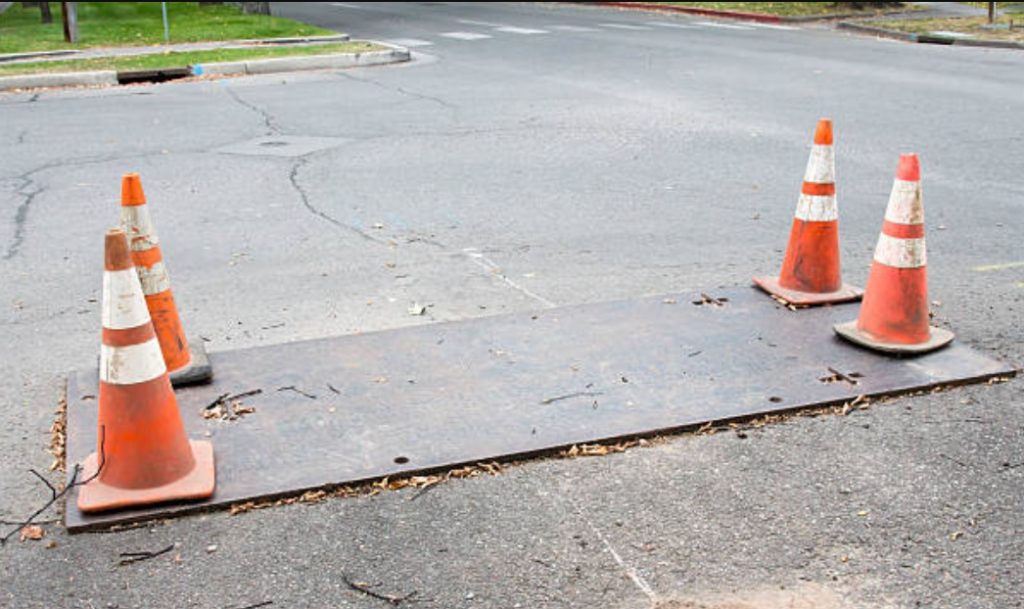A reliable option for managing heavy traffic on driveways is steel plates. During road construction they are perfect due to their strength and durability. They permit safe passage of automobiles over ongoing construction while safeguarding driveway surfaces. Steel plates provide greater stability and less disturbance than temporary gravel or plywood. They also withstand weather-related and ongoing vehicle wear and tear. Steel plates lessen damage to underlying surfaces when installed properly because they distribute loads evenly. Their portability and simplicity of installation make them a sensible option as well. Steel plates offer a sturdy reliable surface for driveways in both residential and commercial settings. Even under extreme daily stress their structural integrity holds steady. In the end steel plates combine engineering science and practicality to produce durable safer temporary traffic support solutions for driveways.
How Steel Plates Contribute to Maintaining Driveway Aesthetics During Roadworks
Keeping the appearance of the driveway during roadwork is often overlooked. Steel plates tidily cover interruptions keeping things aesthetically pleasing. They create a flat surface that reduces the visibility of construction. Steel has a more industrial smooth finish than gravel or wooden panels used temporarily. Their sleek uniform appearance contrasts well with the exterior of modern or commercial buildings. For added visual harmony you may also use textured finishes or paint marks. Steel plate for driveway keeps clean edges and surface lines by preventing dirt and dust spread.
They help to stop the erosion or displacement of existing surface material. This keeps borders and landscaping clean and undisturbed. By preventing ugly gaps or uneven patches their stable placement minimizes shifting. Throughout the project driveways are kept visually intact because steel does not easily crack. Steel ensures that temporary repairs won’t lead to long-term visual issues. Homeowners can manage work with this technique without compromising design. Visual consistency improves client and public perception.
How They Can Be Used in Residential and Commercial Driveway Projects
Steel plates are widely used in driveway situations both residential and commercial. They offer short-term access in residential areas while subterranean utility work is underway. As long as they don’t damage exposed soil or newly laid concrete homeowners can keep using their driveways. Steel plates allow vehicles to safely pass through trench cuts while repairs are being made. Because they allow early access they also shorten construction timelines. Steel plate for driveway is used in commercial settings to support larger vehicles such as delivery trucks and service vehicles. Shopping malls office buildings and warehouses frequently need sturdy dependable temporary surfacing. Steel plates don’t deteriorate when subjected to heavy repeated loads.
While long-term driveway or infrastructure upgrades are underway they allow businesses to continue operating. The installation process is quick and causes little disruption to traffic flow. For added safety in crowded commercial areas anti-skid coatings or surface textures can be applied. Custom sizes can be made to fit traffic patterns and driveway dimensions. Steel plates provide a balance of strength safety and use continuity for both short- and long-term applications.
How to Properly Remove and Store Steel Plates After Temporary Driveway Use
To prevent causing damage to property, steel plate for driveway has to be removed in a methodical manner. First clear the area of all the vehicles. Second check the plates for wear or bending prior to their removal. Third utilize proper lifting tools to prevent injury or damage to the plates. Lastly do not pull the plates because this can create scarring on the driveway surface. Also stack the plates on a level surface with spacers of wood between them so that they won’t corrode or get scratched due to water accumulation. Do not forget clean the plates thoroughly to shed dirt oils or road chemicals before storage.Finanly coat with a rust inhibiting coating to prevent rusting when in storage. Lastly store the plates in an enclosed dry condition with low humidity.If plates are being stored outdoors use waterproof tarps and pile them above the ground.


